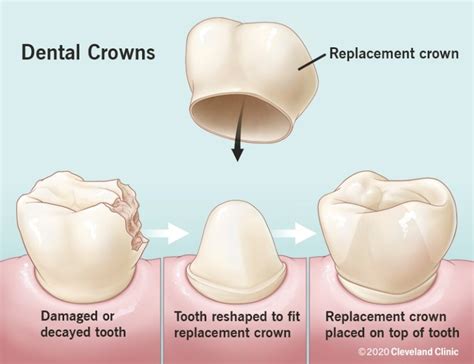Dental Crowns: A Guide to Timing and Expectations
Dental crowns are a common restorative treatment used to protect and strengthen damaged teeth. Understanding the timeline involved and what to expect throughout the process is crucial for managing your expectations and ensuring a positive outcome. This comprehensive guide will walk you through the entire process, from initial consultation to final restoration, answering common questions along the way.
How Long Does the Whole Process Take?
The total time for getting a dental crown can vary, depending on several factors. These include the complexity of the procedure, the dentist's schedule, and whether any unforeseen complications arise. Generally, the entire process, from initial consultation to the placement of the permanent crown, can take anywhere from two to four weeks.
Phase 1: Initial Consultation and Preparation (1-2 Visits)
This initial phase involves a thorough examination of your tooth and a discussion of your treatment options. The dentist will take X-rays and impressions to assess the extent of the damage and plan the crown's design. If significant decay is present, a root canal may be necessary before the crown can be fitted, adding to the overall time. The tooth will then be prepared by carefully removing a layer of enamel to create space for the crown. A temporary crown is placed to protect the prepared tooth until the permanent one is ready.
Phase 2: Crown Creation and Fitting (1-2 Weeks)
This is where the dental lab creates your custom crown based on the impressions taken. The creation process itself usually takes around one to two weeks, depending on the dental lab's workload and the complexity of the crown. During this time, you’ll wear a temporary crown, which may be somewhat sensitive or feel slightly loose.
Phase 3: Permanent Crown Placement (1 Visit)
Once the permanent crown is ready, you’ll return to the dentist’s office for its placement. The dentist will carefully check the fit, make any necessary adjustments, and cement the crown permanently in place. A post-operative check-up is often scheduled a week or two later to ensure everything is healing properly.
What Can I Expect During the Procedure?
The procedure itself is generally painless, thanks to the use of local anesthesia. You may experience some pressure or discomfort, but significant pain is uncommon. However, following the procedure, you might experience some temporary sensitivity to temperature changes or pressure.
What Happens During the Preparation of the Tooth?
During tooth preparation, the dentist will remove a layer of enamel to make space for the crown. This is done using a local anesthetic to numb the area, minimizing any discomfort. The preparation stage is precise, ensuring a perfect fit for the final crown.
How Long Does the Temporary Crown Last?
Temporary crowns are designed to protect the prepared tooth while the permanent crown is being made. They typically last for two to four weeks. While they’re durable enough for everyday use, it's important to avoid chewing on hard foods or sticky substances to prevent damage or displacement.
What Happens if the Temporary Crown Falls Out?
If your temporary crown falls out, contact your dentist immediately. It’s crucial to protect the prepared tooth to prevent further damage or infection. They may be able to fit a new temporary crown or adjust your schedule to expedite the permanent crown placement.
What Should I Expect After the Procedure?
After the permanent crown is cemented, you may experience some temporary sensitivity, especially to hot and cold temperatures. This usually subsides within a few days or weeks. Proper oral hygiene, including regular brushing and flossing, is essential to ensure the long-term success of the crown. You should also avoid biting on hard objects to prevent chipping or damage to the crown.
How Long Does a Dental Crown Last?
With proper care, a dental crown can last for 10-15 years, or even longer. Regular dental check-ups and good oral hygiene practices are key to maximizing the lifespan of your crown. However, factors like grinding your teeth, poor oral hygiene, or trauma to the area can shorten its lifespan.
This guide provides a general overview of the timing and expectations associated with getting a dental crown. Remember to consult with your dentist for personalized advice and to address any specific concerns you may have. Your dentist is your best resource for accurate information tailored to your individual circumstances.

